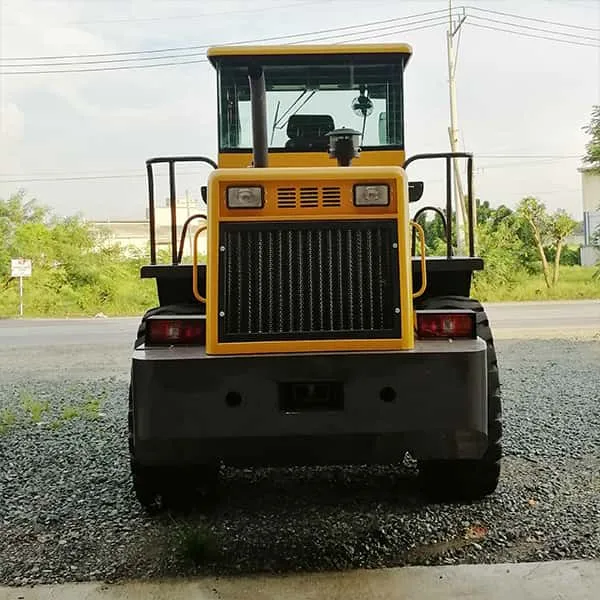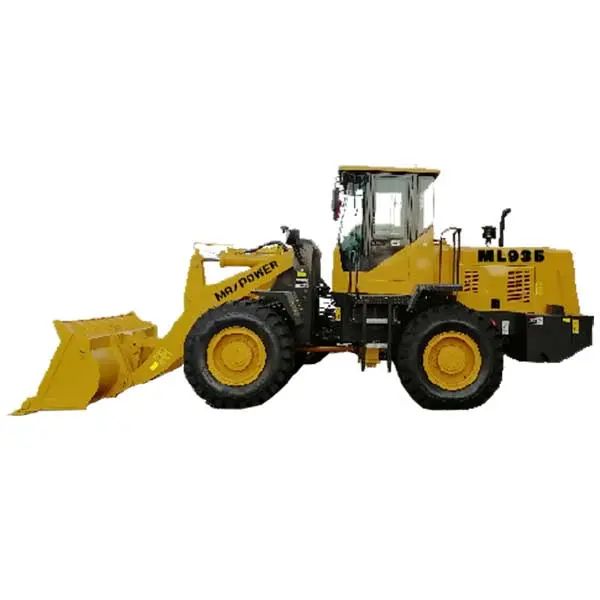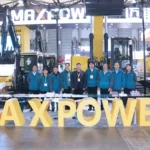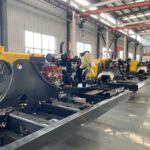Introduction
Wheel loaders are versatile machines that have become a staple in construction sites, quarries, and agricultural fields. They are designed to move and load materials efficiently, making them indispensable for a wide range of tasks. In this blog post, we will explore the different types of wheel loaders, their features, and how to choose the right one for your specific needs. We’ll also delve into the various factors that can affect your choice, such as the type of work, terrain, and budget.
Understanding Wheel Loaders

Wheel loaders are heavy equipment vehicles that use a large, rigid arm to scoop, lift, and move materials. They are mounted on wheels, which provide them with excellent mobility and maneuverability. The versatility of wheel loaders comes from their ability to attach various tools and accessories, such as buckets, forks, and pallet forks, allowing them to perform a wide range of tasks.
Key Features to Consider
When selecting a wheel loader, there are several key features to consider, including:
- Size and Capacity: The size and capacity of the wheel loader will determine the amount of material it can move at once. Larger loaders can handle more material but may be less maneuverable in tight spaces.
- Engine Power: The engine’s power directly impacts the loader’s performance. A more powerful engine will allow the loader to work more efficiently, especially in tough conditions.
- Ground Clearance: Higher ground clearance is beneficial for working on uneven terrain, while lower clearance is suitable for flat surfaces.
- Hydraulic System: The hydraulic system is crucial for the loader’s lifting and moving capabilities. A more advanced system will provide better control and precision.
- Cab Comfort and Features: The operator’s comfort and ease of use are paramount. Look for features like air conditioning, good visibility, and intuitive controls.
Types of Wheel Loaders
Compact Wheel Loaders
Compact wheel loaders are designed for small-scale operations where space is limited. They are smaller and lighter, making them ideal for landscaping, loading trucks, and moving materials around a construction site.
Skid-Steer Loaders
Skid-steer loaders are compact and highly maneuverable, with the ability to turn in place. They are equipped with a universal quick-attach system, allowing for a wide range of attachments to be used.
Vertical Lift Loaders
Vertical lift loaders have a higher lifting capacity and better reach compared to radial lift loaders. They are suitable for tasks that require lifting heavy loads to greater heights.
Radial Lift Loaders
Radial lift loaders have a shorter lift arm, which provides better visibility and maneuverability. They are ideal for general-purpose loading and grading tasks.
Mining Loaders
Mining loaders are the largest and most powerful type of wheel loaders, designed for heavy-duty mining operations. They can handle large volumes of material and operate in harsh environments.
Comparison Table
| Feature | Compact Loaders | Skid-Steer Loaders | Vertical Lift Loaders | Radial Lift Loaders | Mining Loaders |
|---|---|---|---|---|---|
| Size | Small | Compact | Large | Medium | Very Large |
| Capacity | Low | Medium | High | Medium | Very High |
| Maneuverability | High | Very High | Low | High | Low |
| Lifting Capacity | Low | Medium | High | Low | Very High |
| Terrain Suitability | Flat | Tight Spaces | Flat to Uneven | Flat to Uneven | Uneven |
| Power | Low | Medium | High | Medium | Very High |
| Versatility | Medium | High | Medium | High | Low |
Factors Affecting Your Choice

When choosing a wheel loader, consider the following factors:
Type of Work: The nature of the work will dictate the type of loader you need. For example, mining operations require powerful loaders, while landscaping may only need a compact loader.
Terrain: The terrain on which you will be working can affect your choice. Compact loaders are better suited for flat terrain, while mining loaders can handle uneven and rocky terrain.
Budget: Your budget will play a significant role in your decision. Larger and more powerful loaders are more expensive, so you’ll need to balance your needs with your budget.
Operator Comfort: The comfort of the operator should not be overlooked. A comfortable cab with good visibility and controls can increase productivity and reduce fatigue.
Maintenance and Support: Consider the availability of maintenance services and support in your area. Some wheel loaders may require specialized maintenance that may not be readily available.
Conclusion: Types of Wheel Loaders
Choosing the right wheel loader for your needs involves a careful consideration of the type of work, terrain, budget, operator comfort, and maintenance requirements. By understanding the different types of wheel loaders and their specific features, you can make an informed decision that will enhance your productivity and efficiency. Remember, the right wheel loader is not just about power and size; it’s about finding the perfect balance between performance and practicality for your unique requirements.
FAQ
What is the difference between a skid-steer loader and a compact wheel loader?
Skid-steer loaders are compact and highly maneuverable, capable of turning in place, which makes them ideal for tight spaces. Compact wheel loaders, while also small, offer better mobility on larger job sites and can handle more material at once.
Can wheel loaders be used for digging?
While wheel loaders are primarily designed for loading and moving materials, they can be equipped with specialized attachments that allow them to perform light digging tasks. However, for heavy-duty digging, it is recommended to use a dedicated excavator.
How do I maintain a wheel loader?
Regular maintenance is crucial for the longevity and performance of a wheel loader. This includes checking and changing the engine oil, inspecting and replacing worn parts, and ensuring that the hydraulic system is functioning correctly.
What are some common attachments for wheel loaders?
Wheel loaders can be equipped with a variety of attachments to enhance their versatility. Common attachments include different types of buckets (general purpose, rock, gravel), pallet forks, snow blades, and hammers for breaking up hard materials.






-150x150.webp)
